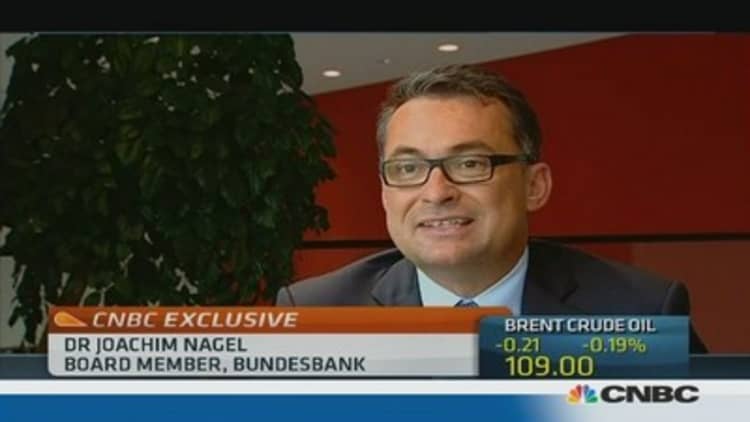
Politicians across the euro zone still haven't learnt that uncertainty spread by governments will weigh heavily on European markets, warns Joachim Nagel, an executive board member of Germany's central bank.
"These politicians must learn for the past," Nagel told CNBC Friday.
"So they have to look carefully at what they are doing and they have to understand the lesson that they have to stabilize. The country's have to bring the budget into balance, have to develop a new business model."
(Read More: ECB Cannot Solve Euro Zone Crisis, Says Bundesbank Chief)
Meeting in Frankfurt to discuss the state of Europe's debt crisis, Nagel told CNBC that if politicians are able to further stabilize their economies then financial markets are set to profit from these developments.
However, he added that further developments on financial regulation still needed to be completed.
"There's lots to do in the future, but much better when where we were a couple of months ago," he said. "Maybe we have to be cautious, we will see what Autumn brings us."
(Read More: EU threatens to stop sharing terrorist data with US)
In September 2012, the European Central Bank's President, Mario Draghi, announced the Outright Monetary Transactions (OMT) program to buy the sovereign bonds of stricken euro zone members. It might be the least costly program he's ever introduced, as investor sentiment has returned without the need for Draghi to pull the trigger.
Nonetheless, the Bundesbank remains a fierce critic of the extra liquidity that could be pumped into the European financial system. Nagel said that what Europe learned during the financial crisis is that if you don't "keep the pressure in the pipeline" then nothing will change on the political side, indicating that crucial reforms would just be delayed further.
"If it is not activated then it is a really good thing," he said. "The politicians have to deal with their problems."
—By CNBC.com's Matt Clinch. Follow him on Twitter @mattclinch81

